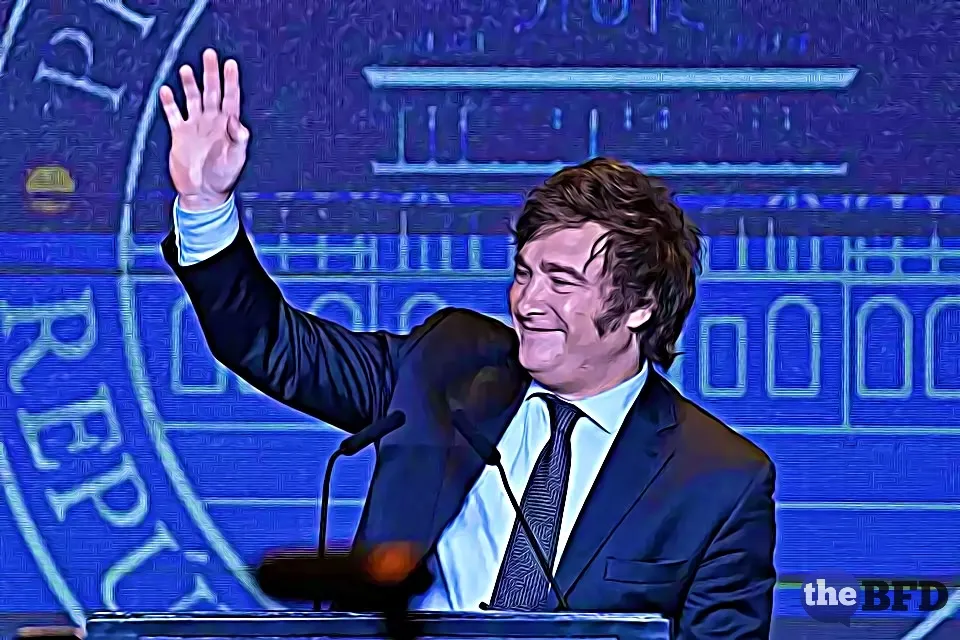Table of Contents
Javier Milei
Javier Milei is Argentina’s first-ever libertarian president. He is a graduate in Economics from the University of Belgrano. He completed a postgraduate degree in Economic Theory at the Institute of Economic and Social Development and a postgraduate degree in Economics at the Universidad Torcuato Di Tella.
On May 6, 2021, Javier Milei delivered a virtual presentation for FEE to 9,750 students titled “4 Record-Breaking Economics Lessons.” The following is an excerpt from that presentation.
The institutions of capitalism can be boiled down to five key principles. The first institution is what we know as private property.
The second is free markets, meaning markets without state interference.
Next is competition, but not the neoclassical concept of perfect competition. It’s closer to Adam Smith’s idea of competition, involving free entry and exit. This concept was further refined in recent times by William Baumol and the theory of contestable markets, which deals with market operations.
Lastly, there are two institutions related to the logic of the market: the division of labor, which promotes specialization, and social cooperation.
People are naturally diverse, and the larger the market, the more it promotes the division of labor. This division of labor fosters social cooperation. As Bastiat put it, “Where goods do not cross borders, armies will.” In other words, societies that engage in trade tend to have more peace.
Essentially, what is a market? A market is a process of social cooperation where property rights are exchanged. This is where the definition of property rights and free, unregulated markets come into play.
The price system in economics is analogous to the nervous system in the human body. Now, it becomes crucial that markets are free. Why? Because when markets are not free and the state intervenes, the price signal starts to get muddied. When the price signal becomes muddied, the signal that travels through the system is unclear. When it’s unclear, there is no coordination, no adjustment.
Moreover, many times when attempts are made to regulate these things, the result ends up being worse than the initial situation – the so-called market failure, which I don’t subscribe to.
However, some, in their arrogance and lack of understanding of how the market works, accuse the market of not functioning. And when they attempt to correct it, the state’s intervention often worsens the situation.
So, what’s the point? The point is that the more state interference there is, the worse the price system functions.
This is a crucial element. Why is it so important? Because it explains why socialism doesn’t work. In real socialism, in communism, there’s no private property.
So, with no private property, exchanges lose their meaning. There’s no concept of price. Consequently, there’s no price signal to guide resource allocation. Therefore, socialism fails precisely because it can’t perform economic calculations, and it can’t do this because it doesn’t respect property rights.
Another critical aspect of the functioning of the price system is the role of profits.
Profits are extremely important. Suppose we have an economy that produces goods A and B. For some reason, people decide to consume less of B and more of A. In this scenario, there will be excess demand in the market, causing the price of A to rise and the price of B to fall.
When this happens, resources will reallocate from the production of B to A.
We’ve seen this before, with how various governments worldwide have been meddling in the vaccine and testing markets. Why? Because they were tampering with the price signal. Instead of helping reduce scarcity, they were exacerbating it. What’s more, in many cases, these activities were monopolized by the government, which, as we’ve already seen, does everything poorly because it spends other people’s money on others, leading to inevitable inefficiencies.
Consider rent control laws. This has been attempted several times in many places. When you try to control rental prices, what will happen? It’s quite simple.
On one hand, property owners will withdraw their properties from the market, which will exert upward pressure on rental prices, and in some cases, lead to a black market.
But it doesn’t end there. If the regulator is efficient at pursuing property owners, what will happen? How will they adjust? They will adjust by deteriorating the quality of the properties. So, property quality will decline.
Thus, the supply of rental properties will worsen. Moreover, since the regulated price is below equilibrium, you’ll have a situation where more people than normal are looking for rentals. This will result in severe shortages and create a massive problem.









